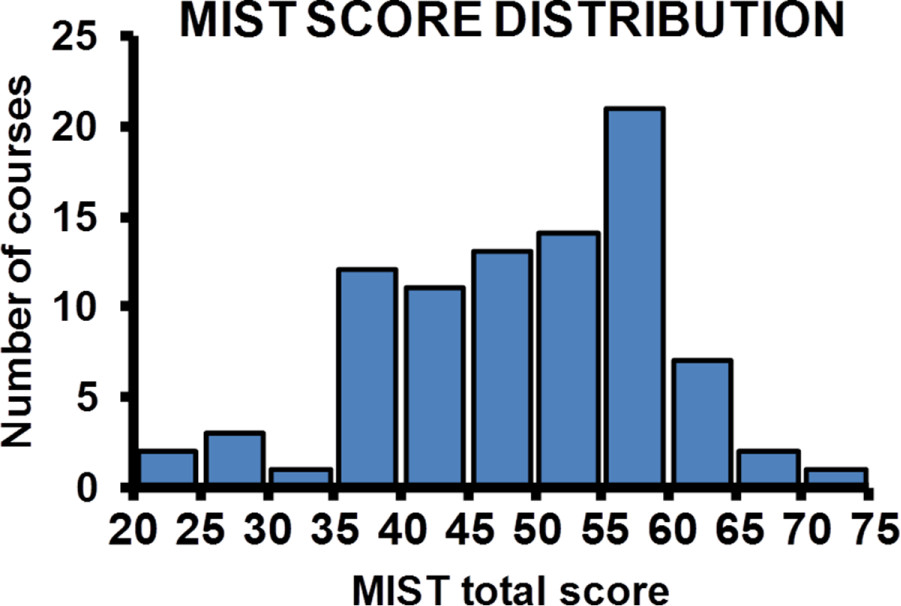Developed by Mary F. Durham, Jennifer K. Knight, and Brian A. Couch
| Purpose | To assess the frequency and breadth of scientific teaching practices in undergraduate science courses. |
|---|---|
| Format | Multiple-choice, Agree/disagree |
| Duration | 15 min |
| Focus | Teaching (active learning, inclusivity, responsiveness, experimental design, communication, data analysis and interpretation, cognitive skills, reflection) |
| Level | Upper-level, Intermediate, Intro college |
Sample questions from the MIST:

more details
This is the second highest level of research validation, corresponding to at least 5 of the validation categories below.
Research Validation Summary
Based on Research Into:
- Student thinking
Studied Using:
- Student interviews
- Expert review
- Appropriate statistical analysis
Research Conducted:
- At multiple institutions
- By multiple research groups
- Peer-reviewed publication
The MIST was developed based on scientific teaching practices reported in the literature and has been extensively tested and iterated. Survey items were piloted with a small (n=29) subset of students who took the MIST and participated in interviews. The final survey was tested in 87 courses across 9 institutions. MIST has a high internal reliability, overall alpha of 0.93. Factor analysis and expert review were also conducted.
References
- M. Durham, J. Knight, and B. Couch, Measurement Instrument for Scientific Teaching (MIST): A Tool to Measure the Frequencies of Research-Based Teaching Practices in Undergraduate Science Courses, CBE Life. Sci. Educ. 16 (4), ar67 (2017).
We don't have any translations of this assessment yet.
If you know of a translation that we don't have yet, or if you would like to translate this assessment, please contact us!
Download the MIST scoring tool.
| Typical Results |
|---|
Distribution of overall MIST scores and scores on subcategories for 87 courses across 9 institutions, from Durham et al. 2018:
|
There is a short version of the MIST called the MIST-short, designed for users with survey time constraints, such as instructors or researchers who want to pair MIST with other instruments. This version has the same subcategories as the MIST, but fewer items within each sub-category. The MIST-short takes approximately 5 minutes for students to complete.
Variation
|
|
Measuring Instrument for Scientific Teaching-ShortTeaching (active learning, inclusivity, responsiveness, experimental design, communication, data analysis and interpretation, cognitive skills, reflection)Upper-level, Intermediate, Intro college Multiple-choice, Agree/disagree |





